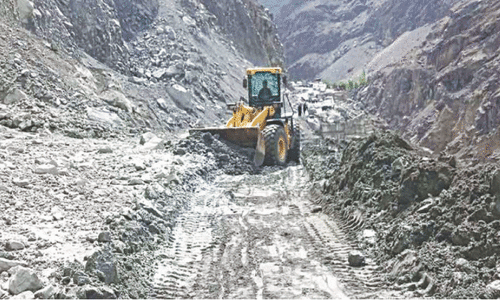HYDERABAD, Sept 20: The shortage of water in Indus and heavy fishing pressure from local fishermen are the main reasons of decline of Pallo species’ population says Prof Dr Naeem Tariq Narejo of Aquaculture Department of Freshwater Biology and Fisheries of University of Sindh here on Thursday.
He was addressing at the inaugural ceremony of the Pilot Indoor Hatchery and Aquaculture Laboratory which was jointly established by the University of Sindh and Pakistan Agriculture Research Council (PARC) at Allama I.I.Kazi campus Jamshoro.
Dr Naeem Tariq Narejo Professor of Aquaculture at the Department of Freshwater Biology and Fisheries who is principal investigator of the project will be the supervisor.
The laboratory was inaugurated by the vice-chancellor Sindh University Mazharul Haq Siddiqui here Thursday.
Dean Faculty of Natural Sciences, Dr Mohammad Yar Khuhawar, scientists and faculty members, research scholars and students from different teaching institutes and departments attended the ceremony.
Briefing the vice-chancellor, Dr Narejo, highlighted the objectives of the project, said the pilot project would be helpful in increasing feed products for the fish and would promote different fish species including cat fish (Rita Rita), Tenualosa Ilisha (Pallo) and Carps.
He said that rare species like Rita Rita and Tenualosa ilisha (Pallo) would be bred artificially in the laboratory so that these valuable species could be saved from extinction.
He said that due to favourable environmental conditions in the past, Pallo used to grow up to 5 kilogram but after the construction of barrages on Indus River (G.M.Barrage Jamshoro and Sukkur Barrage) its growth has been reduced to half kg.
He said that the Pallo species could survive in captivity and lay eggs in indoor conditions, which is the basic purpose of this pilot laboratory.
In connection with Rita Rita species, Dr. Narejo said that it has great market potential in Gulf countries so the fishermen used to sell their catch for export to get handsome amount instead of local market.
The laboratory has been completed at a cost of Rs0.25 million within one month.
It would help research scholars registered for MPhil and PhD research under the supervision of Prof Narejo.
He said that the laboratory would supply seed and feed to the fish farmers and earn about Rs3 million a year.
The Vice-chancellor expressed the hope that the laboratory would prove helpful for practical work of the department at undergraduate and post-graduate levels.
He said that fish have a lucrative market and the graduates of the freshwater biology and fisheries through their research and practical experiences could also prove helpful to the society.














































